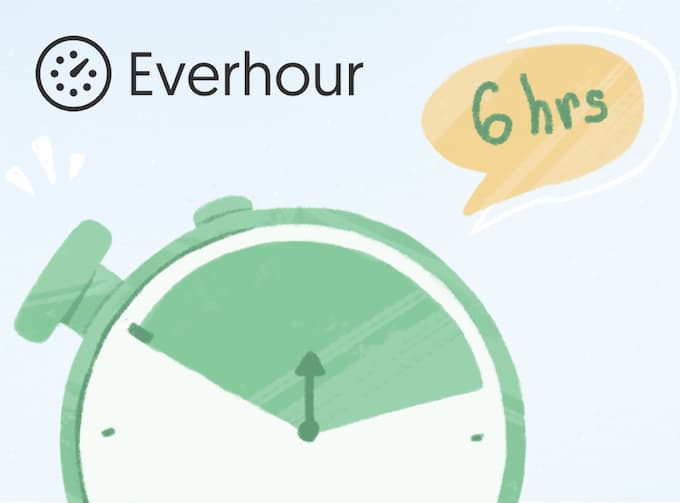The concept of work efficiency is nothing new: people spent years and millions of dollars looking for ways to get more done without spending more time, effort, and costs.
Yet, last year, the importance of workplace efficiency rose to a whole new level as millions of people found themselves locked out of their convenient offices, forced to deal with a ton more distractions, and still managed to cope with their regular workload.
In this article, we will share some of the proven tactics on how to work more efficiently using the newest tools and technology available to us today, including free employee shift scheduling apps that can help streamline processes and improve productivity.
Proven Tactics for Higher Work Efficiency
According to a recent study by Atlassian, an average employee faces around 56 interruptions per day. That’s 7 disruptions per hour, which means that…
For a typical employee in 2021, the average timeslot of productive focused work is about 8 minutes.
The numbers are chilling. Each one of those disruptions takes a toll on your efficiency, as you will spend, on average, around 2 hours a day simply trying to get back on track with your work. That’s a lot of time wasted! And that’s definitely not what efficiency looks like.
But! Worry not. If you’re looking to increase your work efficiency, these proven tactics will certainly help:
1. Focus on clear objectives for optimal efficiency
Work efficiency starts with setting clear objectives to keep your eyes on. Be it the OKR framework or good-old KPIs — you can pick whatever works for you. The goal is to give you something to measure your progress against.
To make it easier to keep track of your performance, try to break your long team goals down into smaller measurable tasks and milestones. It is generally recommended to set 1-5 objectives, each one of those having 3-5 key results.
Having your goals sorted out (along with pre-defined deadlines) will help you:
- understand the real scope of work to be done
- allocate your time and resources smartly
- better plan your processes based on your resources and KPIs
Speaking of resources: while you might be tempted to jump on all of those tasks and goals at once, multitasking will only harm your efficiency. Even if you only manage yourself (not a team), you should treat your own physical and mental energy as a resource, and you will immediately see the benefit of only focusing on one single task at a time. If you don’t prioritize like a rockstar, anxiety, reduced focus, and procrastination will catch up with you.
2. Delegate responsibilities for better results
While the common objectives are typically set for the team or the whole organization, it’s better to assign specific key results or lower-level tasks to each team member personally.
It also makes sense to allocate these tasks and responsibilities considering each person’s strengths (or even personal preferences). This will give your team members a sense of ownership and improve their engagement.
As for the routine, repetitive tasks that add no value, consider automating them using dedicated tools. After all, the most expensive software will cost you less than a full-time (or even part-time) employee.
Luckily, there are tons of automation tools that can take care of mundane activities, from administrative tasks and internal processes to customer-facing marketing and sales engagement.
3. Reduce time-wasting activities for peak efficiency
One of the top time-wasters, meetings, keep 65% of executives from completing their own work and come at the expense of deep thinking. That is because most of them are unproductive and inefficient.
So if you want to be more efficient, start with reducing the number of meetings and try to make them more productive — i.e. use timeboxing and stick to the agenda. Many teams try to have at least one day a week completely free of meetings.
There are also many companies, especially remote ones, that have adopted asynchronous communication. You can either pre-record short videos detailing your current status or have a dedicated Slack channel for daily sync-ups.
While there are many meetings that “could have been an email”, there are also some things that should be communicated in-person rather than via email or message. The key here is to use the available communication channels deliberately.
4. Block out the noise
Communication is the key to team productivity. Yet, its overload can harm your efficiency more than lack thereof. Namely, switching between an average of 10 apps every day isn’t just tiresome, it’s easy to get lost in the noise across all communication channels.
The goal is to make technology contribute to your work efficiency and not further disrupt it.
That is why you should pay attention to your choice of tools and channels for internal communication and collaboration. To start with, try muting the notifications on your devices for a couple of hours per day. Having several “work sprints” — interruption-free 1-2 hour working intervals — per day is a great way to increase your efficiency and focus on getting the job done.
5. Collect insights about your workday
If you want to maintain high work efficiency, you need to know HOW you spend your time and make sure to spend it WELL. This is where time tracking comes in handy. Paired with your project management software, it can provide actionable insights into your and your team’s typical workday and optimize it for better efficiency.
A good idea would be to keep note of your ups and downs during the typical workday. When are you most efficient, and what are some periods when you could as well take a coffee break, recharge, or catch up on emails instead of doing deep focus work? Understanding this will help you better structure your daily routine.
Taking short breaks during the day can also contribute to your work efficiency. After all, you can’t stay focused for 8 hours in a row. Research shows that the most productive employees take 17-minute breaks for every 52 minutes of work.
Though, it’s important to distinguish between planned breaks and interruptions. The latter are deadly enemies of productivity while having short managed breaks during the day (e.g. a quick walk or yoga session) is a great way to regain energy and refocus!
What Makes an Efficient Team
Your employees are the most valuable asset a business can have. Yet, even the best team will slack if crippled with endless distractions, poor processes, and scarce resources.
This is why maintaining high work efficiency is so important.
Working efficiently means “performing or functioning in the best possible manner with the least waste of time and effort.” This typically requires eliminating the distractions and unnecessary, wasteful activities to be able to focus on top-priority tasks that actually generate any business value.
The distractions standing in the way of efficient work may vary from team to team. Some are external, like unnecessary meetings, email bloat, or workplace interruptions (e.g. noisy coworkers). Others might be more personal, like procrastination or, quite the opposite, multitasking.
In face of the listed roadblocks, there are certain traits most teams that boast high efficiency have in common:
- Planning – They have clear processes and stick to them.
- Focus – They set clear, realistic goals and prioritize their tasks accordingly.
- Alignment – They cooperate and communicate purposefully.
- Self-management – They are motivated and committed to the results.
It’s also worth mentioning that there’s a slight difference between “efficiency” and “productivity.” The latter usually refers to the amount of work done. Efficiency, on the other hand, is a broader and more important quality as it also takes into account the resources used in the process of doing that work.
A person can attend over 10 meetings a day, juggle a dozen of tasks at once, and work late every day but still be inefficient.
In fact, such multitaskers are very likely to burn out or even develop more serious health issues down the road. After all, it’s not always the result that counts — the means matter as well, especially if those means zero out your revenue at the end of the quarter.
But there are more benefits of working efficiently than cost savings due to the rational use of available resources:
- Increased competitiveness
- Higher organizational scalability
- Better quality of products and services (as a result of reduced errors)
Moreover, an efficient workplace can contribute to your team’s wellbeing, help you maintain high morale, and drive engagement. This makes efficiency one of the most important (and sought after) aspects of a successful business.
If you are managing a team of 5 or more and looking to boost efficiency, Everhour is the perfect tool to keep your team on track. With seamless time tracking, you can easily estimate task durations, set clear budgets, and generate detailed reports inside Asana, Trello, Jira, or any other pm tool.
Work Efficiency: Find Your Own Recipe
We hope that the listed tactics will become your foundation for building a more efficient team. Yet, it’s important to remember that every person within your team works at their own pace. Some are naturally more organized and thus productive, others are more sensitive to distractions and easily lose their focus.
So, don’t force these rules on your team. Encourage them to try out different tactics to see what works or come up with their own recipes for working efficiently. Just make sure to measure and analyze how each of the adopted practices impacts your performance and bottom line!

All-in-one time management system for your team
Estimate tasks, set budgets, customize reports – direct in your project management tool.
✔️ Asana time tracking
✔️ Trello time tracking
✔️ Basecamp time tracking
✔️ Jira time tracking
✔️ GitHub time tracking
✔️ ClickUp time tracking
✔️ Monday time tracking

